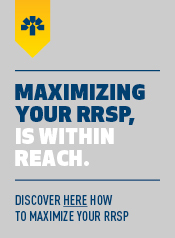Supplemental Pension Plans (SPPs)
Also known as "pension funds," SPPs are provided by your employer. They provide a supplemental pension at a predetermined age and under predetermined conditions.
When you contribute to an employer-sponsored plan, you receive a statement of benefits that allows you to watch your contributions grow. It shows you the investment income you have accumulated and sometimes even the total pension you will get when you retire.
If you leave your job before retiring, you have two options:
- Your funds continue to be managed as if you were still an employee, even though you are no longer contributing, and you start to receive your pension at retirement.
- Your fund is transferred to a locked-in plan, either a locked-in retirement account (LIRA) or a locked-in RRSP, depending on your company's provincial (LIRA) or federal (RRSP) jurisdiction. In this case, if you want your money to continue to grow tax-free, you must transfer it to a life income fund (LIF).
To receive a pension from an SPP, you must be within ten years of the standard retirement age. Since that age is 65, you are eligible for your pension if you retire as early as 55. Usually, you receive benefits on a monthly basis for the rest of your life.
There are two main types of SPPs:
- Defined benefit plans
- Defined contribution plans
Defined Benefit Plans
This plan guarantees you a pension indexed to the cost of living according to a specific formula, e.g., a percentage of your salary multiplied by your years of service.
Your employer can tell you more about the formula for the pension you're contributing to.
Defined Contribution Plans
The pension from a defined contribution plan is a little harder to pinpoint since it is not determined in advance. Rather, the amount of your contributions and your employer's contributions are determined in advance. In both cases, they usually represent 4%, 5% or 6% of your salary.
The amount of the pension depends on the funds accumulated in your account and the pension fund’s investment earnings. Since this income fluctuates, you can only get a relatively accurate idea of your retirement income once you stop contributing to the plan.
For any questions related to your SPP or your statement of benefits, contact your pension committee. They are in the best position to shed light on the matter!








